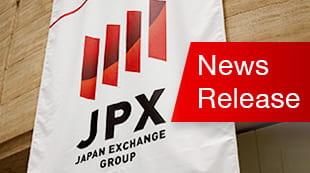Principles for Preventing Corporate Scandals
Background
In recent years, a large number of corporate scandals have emerged at listed companies and received frequent media coverage. These scandals have spread across industries, regardless of company size. Some have taken place in recent years, while others had long gone undetected before coming to light. Whichever the case, these scandals not only have a severely negative impact on society but also hurt the reputation of the company, inflict adverse effects on its business performance and stock price, and thereby damage its corporate value. Going beyond the consequences for individual companies, a capital market where high-profile scandals at listed companies are a common occurrence would lose its credibility due to perceptions of insufficient corporate governance.
In February 2016, Japan Exchange Regulation (JPX-R) published the "Principles for Responding to Corporate Scandals." The document provides guidelines on how to address corporate scandals at listed companies, enabling companies to restore confidence quickly and recover corporate value steadily. Now that corporate scandals are no longer uncommon, however, there is an imperative need for listed companies to take effective measures to prevent the occurrence of corporate scandals. Thus, JPX-R has compiled a new set of principles that focus on preventive (ex-ante) measures against corporate scandals in addition to the aforementioned principles on responsive (ex-post) measures. JPX-R hopes that listed companies will attach due importance to these two sets of principles and endeavor to implement effective measures for achieving their intended aims.
The "Principles for Preventing Corporate Scandals" ("Preventive Principles") are a set of principles-based guidelines that encourage each listed company to take creative approaches in implementing each principle and to establish effective measures that reflect the company's individual situation. A failure to abide by the Preventive Principles alone will not constitute grounds for imposing adverse actions against the listed company, as long as the company has not committed a breach of the TSE Listing Regulations. Rather, JPX-R expects that the Preventive Principles will be used as a guide for exercising self-discipline. JPX-R also hopes that these principles will be shared with the lawyers and accountants who provide professional advice to listed companies, as well as with company shareholders and investors, thereby encouraging the companies to embody better corporate discipline.
Japan Exchange Regulation (JPX-R), a member of Japan Exchange Group, Inc., is a self-regulatory body under the Financial Instruments and Exchange Act that engages in listing examination, listed company compliance, market surveillance, and broker-dealers inspection for Tokyo Stock Exchange and Osaka Exchange. In accordance with the Listing Regulations, JPX-R has the authority to make judgments on adverse dispositions against listed companies in cases involving direct threats to the fundamental infrastructure of the capital market, such as false statements in Securities Reports, inappropriate disclosure, and violations of the Code of Corporate Conduct. On the other hand, JPX-R is not in a position to exercise direct authority on listed companies with regard to corporate fraud or inappropriate acts committed in the course of their business execution unless these acts constitute a violation of the Listing Regulations. JPX-R believes, however, that it is meaningful to share the intellectual assets that it has acquired through its operations, in the form of principles, for the sake of enhancing the credibility of Japan's capital market.
Principles for Preventing Corporate Scandals
Principles for Preventing Corporate Scandals - Protecting Corporate Value -
Listed companies are expected to refer to these principles when implementing measures for preventing corporate scandals (serious improper/inappropriate conduct, etc.) in order to enhance their effectiveness. It is crucial for company management, especially top managers (CEOs), to demonstrate integrity and leadership in addressing this issue.
Principle 1: Gain a thorough understanding of the actual situation
Companies should correctly grasp the current state of their own compliance system in terms of both rules and substance. In doing so, companies should pay attention not only to their compliance with written laws and regulations but also to their sincere, honest responses to stakeholders, including business partners, customers, and employees, and the credibility of their business operations in light of broader social norms. In this context, companies should not take their long-standing in-house customs and industry practices for granted. They should also be keenly aware of the changing social perceptions of the norms over time.
Companies should ensure that its systems for understanding actual conditions function on a continuous, autonomous basis.
Principle 2: Fulfill responsibilities with a sense of mission
Company management should commit to the compliance effort and continually publicize its dedication thereto. In addition, management should set business goals and conduct business in line with the company's real capabilities and the market situation so as not to induce non-compliance.
Audit bodies and supervisory bodies should always be clearly aware of the importance of their disciplining function and should act proactively based on the necessary and sufficient information and objective analysis and evaluation.
Companies should give due consideration to the appropriate organizational design and the resource allocation to ensure the steady functioning of the above.
Principle 3: Encourage two-way communication
Companies should encourage two-way communication between workforce and management, enabling both parties to share a sense of compliance. In this context, the awareness and behavior of middle management is highly crucial in collecting opinions from workforce and conveying them to top management.
Such enhanced communication will help detect cases of non-compliance at an early stage.
Principle 4: Detect non-compliance early and respond swiftly
Companies should detect cases of non-compliance at an early stage and respond to them swiftly in order to prevent individual cases from developing into serious corporate scandals.
Companies should establish this cycle of early detection, swift response, and subsequent corrective action and embed the process into their corporate culture.
Principle 5: Execute consistent business management throughout the entire corporate group
Companies should execute effective business management throughout the entire corporate group. When building its management structure, companies must pay sufficient attention to the importance of each group company and the potential risks involved in line with its overall structure and characteristics.
Overseas subsidiaries and acquired subsidiaries, in particular, require highly effective management in accordance with their individual characteristics.
Principle 6: Be accountable in view of the relevant supply chain
Companies should be aware of their positions in the relevant supply chains so that they are prepared to fulfill their due responsibilities when a serious problem occurs at their outsourcing contractors, suppliers, or distributors.
DISCLAIMER
DISCLAIMER: This translation may be used for reference purposes only. This English version is not an official translation of the original Japanese version. Certain parts of the translation may have been edited to accommodate differences in writing style and expression between English and Japanese. In cases where any differences including, but not limited to, those differences above occur between the English version and the original Japanese version, the Japanese version shall prevail. This translation is subject to change without notice. Tokyo Stock Exchange, Inc., Japan Exchange Regulation, Japan Exchange Group, Inc., and/or their affiliates shall individually or jointly accept no responsibility or liability for damage or loss caused by any error, inaccuracy, misunderstanding, or changes with regard to this translation.














